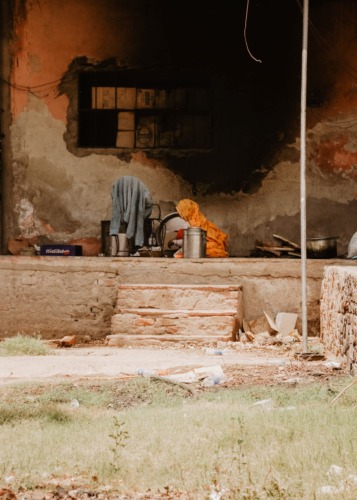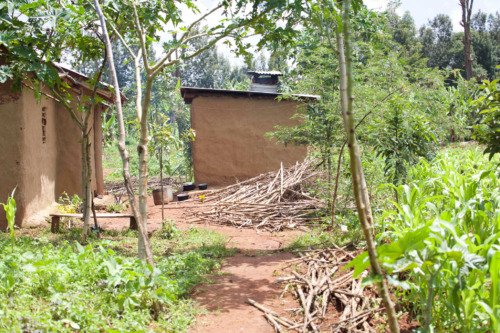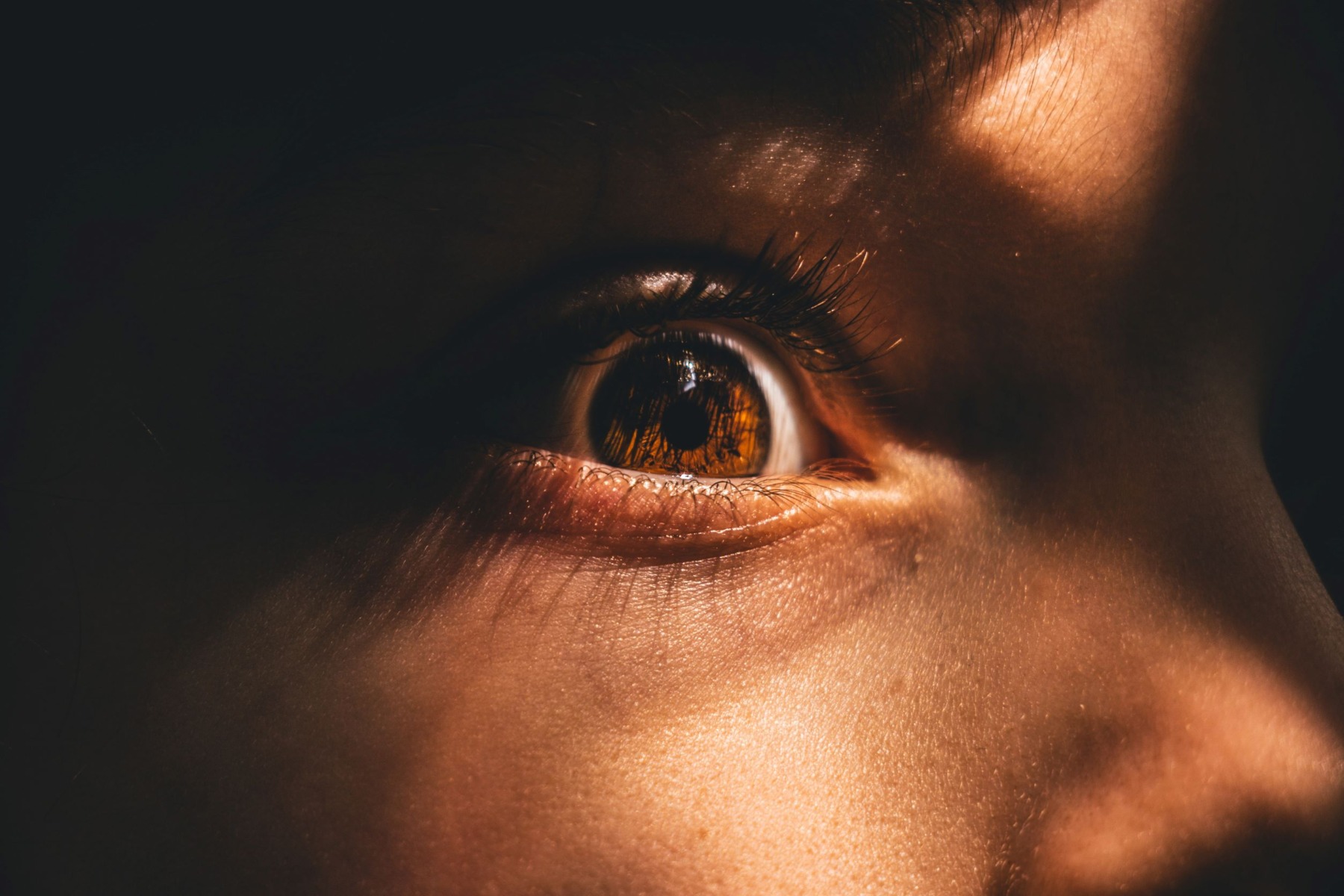This story is hard to read. While the girl’s name is fictional in order to protect her identity, her story is real. Not just for her, but for the many children like her with unstable housing and unsafe families. This story is also one of hope and justice, of wrongs being corrected. It is a story of being homeward bound.
This is written from the perspective of a Horizon team member in the field. To protect the identities of those involved, locations and names are purposefully omitted. When the gates open on admissions day, it’s the dancing that draws children in. Choreographed routines set the whole day in motion, as if the event is set to music that never quite stops. You can’t be there long before your hips start to sway along.
We call these events “admissions ceremonies” in Horizon Micro Communities, but it’s just as much a celebration. After the dancing, children are presented with cakes, welcoming them to the Horizon family in neon frosting letters. Later, they’ll receive new clothing, a symbol of a new life.
It would be convenient to imagine that this is all there is — but having any children at all in our care means there is more to the story. After a child has been approved to enter a Micro Community, they are not simply air-dropped in front of our gates; a parent or caregiver brings them, sometimes with siblings. And when the admissions festivities are over and everyone’s exhausted from all that dancing and cake, those parents take the rest of their kids and begin the journey back home. Just as a new connection is made, another one is — temporarily, if possible — severed. But I wasn’t thinking about any of this at the ceremony that day. I was caught up in the music and merriment with everyone else, taking photos and documenting the welcoming festivities. My eyes scanned the crowd through a camera lens, but quickly stopped on a girl. I noticed her immediately, a young teen sitting with two other children and a mother with a young baby on her lap. Joy surrounded us, but there wasn’t a trace of it on her face. I noticed thick teardrops rolling down her cheeks, as she tried to smile and hide her pain.
I walked over to the girl and stretched out my hand to greet her; which she reluctantly shook.
“My nine-year-old sister is entering the Micro Community,” she says. She tells me the lady with the baby is her biological mother, the baby her younger sister.
I quickly noticed a big, fresh scar on her left arm. “Could you talk with me for a moment?” I asked. She tearfully nodded; a sign of acceptance veiled in deep anguish. We move to find seats behind the crowd. “My name is Sophia*, I’m 13 years old. I dropped out of school a couple months ago due to poverty. I could not afford the uniform and books that were required — my single mother couldn’t afford them.”
I asked her how the past year had been for her — “very bad,” she said. “You can see how my siblings and I look: we’re in pain, we’re suffering…that is all we have experienced. My mother is an alcohol addict, we stay with her in a rented single room where she comes daily with multiple drunk male partners. She says that is how she gets money to feed us. None of us know who our father is.’’ Sophia sobs heavily, unable to speak. She asks for a tissue to wipe her tears, which I give.

‘’Sir, you see this scar on my hand,” she says, holding out her left arm. “This is a burn I sustained two months ago from hot water. My own mother, who is seated right over there, burnt me with hot water. She came home late at night with a man, as usual, and my siblings and I were already asleep. The following morning my mum woke up early to prepare some breakfast in the makeshift kitchen outside our house while we were still asleep. Suddenly, I woke up as someone was trying to touch me indecently from down where we slept on the floor. I screamed and jumped up, noticing it was one of the drunk men mum brought home that night who was attacking me. The man tried to grab me by the waist to rape me, but by God’s grace I escaped his hands and ran to where my mother was. When I told her what had happened, she turned against me, accusing me of telling lies against her man, saying I am the one who seduced him. I was shocked; she was very angry.
“Before I realized what she was doing, she lifted the pot of boiling water she had made for breakfast and poured it on me. Had I not immediately turned the other way, my whole face would have been burned.”
After the burn, Sophia told me she ran away, attempting suicide. Eventually, realizing she had nowhere to go, she went back home — exposing herself to danger all the same.
“When I heard that my sister was going to a safe home, I was very happy. I had to come and see it for myself,” Sophia said. “I wished it was me. I can’t believe it…that there still exists such safe places in this world.”
Sophia’s words pricked my heart like sharp, hot iron. They continued to run vividly in my mind, hoping help would soon come for this innocent girl. She was one of the left behind ones — going back home when the party was over that day, her little sister staying behind in the Micro Community.

I knew plain hope would not bring Sophia to safety. But acting out of hope — that can change everything. Once I learned Sophia’s story I took on a responsibility, with everything in me, to do right by her.
I took the story to my colleagues. Somehow, Sophia had been missed in the process of admitting her younger sister. We were unaware of her situation — but not any longer. Within days of alerting our directors of Sophia’s dangerous living situation, we were able to get in touch with her and bring her to be with her sister at Horizon.
Again, I’m reminded of the complexity in happy endings like this. I rejoice knowing Sophia now lives in safety with her sister, cared for in the Micro Community. But memories of the past remain. So do scars — figuratively, but also physically. There is restoration work to be done in Sophia’s family, which is why our model includes care not just for children but works with their families when possible.
Horizon believes that when parents are empowered with access to the resources they need, including a dignified, stable income, they will be equipped to care for their children, breaking the cycle of poverty for generations to come.
This is Sophia’s story, but it carries the weight of so many stories like it, happening to children every day. When we know specifics, we can act specifically.
Written by the Horizon Creative Content Team

